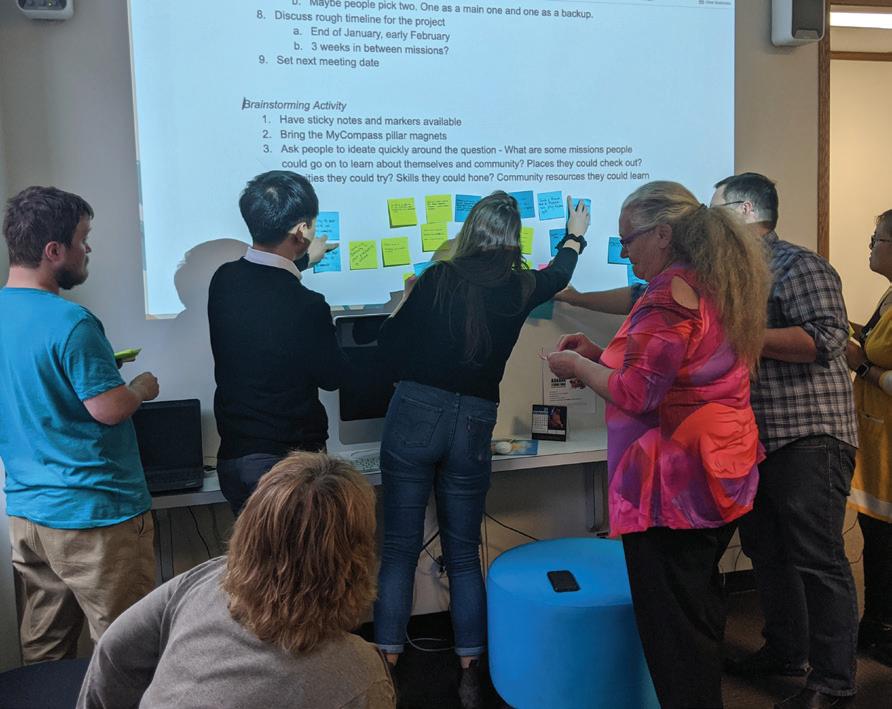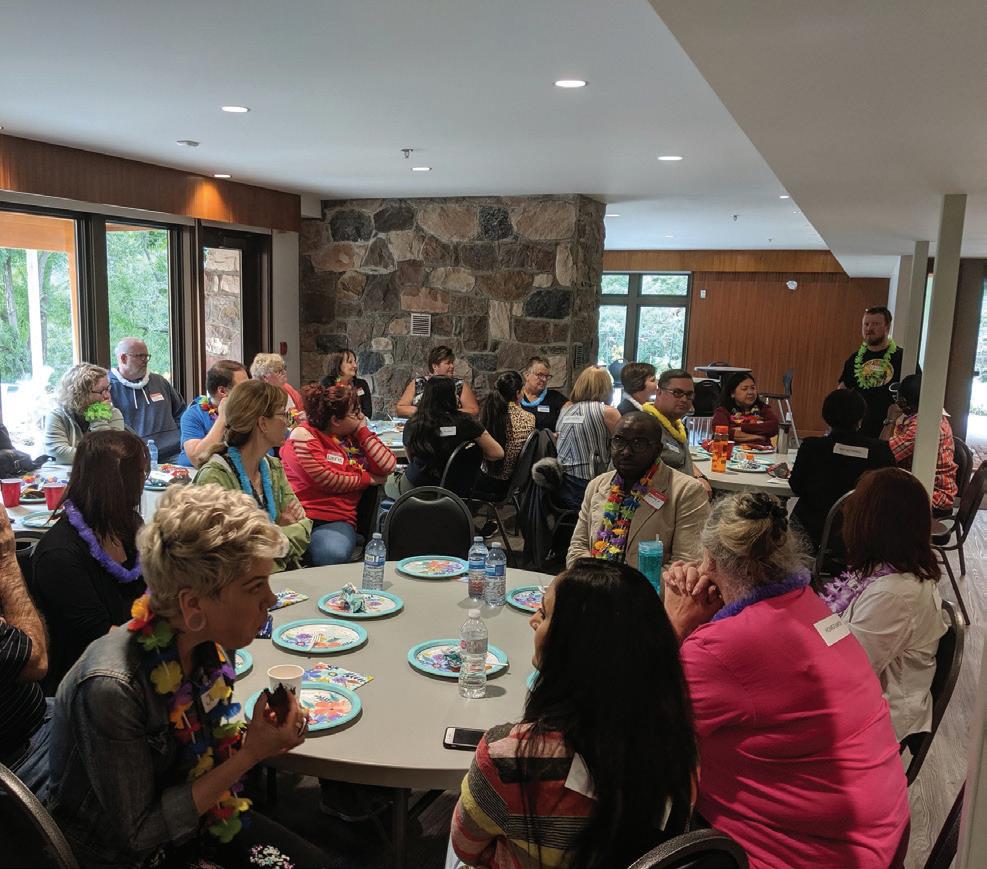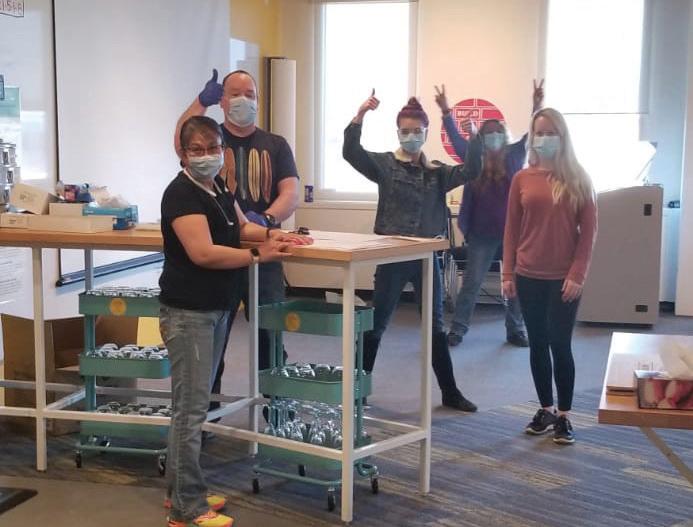
6 minute read
What is Resilience?
Story of Relationships
Relationships are an important part of citizenship - being able to share your life with others in big and small ways. Irene and Arlin have a strong and loving relationship with one another. They celebrated their love and commitment in a beautiful wedding ceremony at their community church on July 29th, 2017. In chatting with Irene and Arlin, it became clear they share a real and meaningful friendship with one another based on trust, support, and looking out for each other:
- Arlin
“He’s a good friend” - Irene
This year, they will be celebrating their fourth wedding anniversary and look forward to spending time together.
WHAT IS RESILIENCE?
In a nutshell resilience is about producing favorable outcomes in the face of adversity. Resilience is a complex phenomenon - it is thought and talked about in many different ways. For example, we can think of resilience at an individual level or at a community level. There is value in each definition of resilience, but taken to an extreme, there are also dangers.
Resilience as Something that Lives in an Individual
To be resilient is to possess certain traits that enable you to thrive in times of challenge. Examples of individual traits commonly associated with resilience might be: courage, adaptability, and strength. In this definition, if you don’t possess these traits, then you are considered more vulnerable and less resilient.
Value: This definition reminds us that there may be certain traits that might make it easier or harder for an individual in times of stress - and that’s ok! We’re all different and respond differently in times of uncertainty.
Danger: At its extreme, this definition excludes the role the community plays in hindering and/or supporting someone’s resilience. It can lead to a ‘just pull up your bootstraps and try a little harder’ type attitude. It has also historically been exclusionary to people with disabilities because they are often viewed by those without disabilities as lacking resilient traits (which of course isn’t the case!).
Resilience as Something That Lives in a Community
To be resilient is to be supported by your community to thrive in times of challenge. Examples of community conditions commonly associated with resilience might be: equal distribution of wealth, affordance of rights to all people, the presence of varied relationships and opportunities for meaningful participation for all. In this definition, if these conditions don’t exist, some marginalized groups are considered to be made more vulnerable and the community is seen to be less resilient and more fragile.
Value: This definition reminds us that we all have a part to play in building resilient communities and that we should not leave it up to any one individual to ‘make it’ in difficult times.
Danger: At its extreme, this definition excludes the role the individual plays in hindering/supporting resilience. Can lead to a ‘this has nothing to do with me and everything to do with society and everyone else’ type attitude.
A tricky thing is that most often when resilience is thought of, it is as an individual trait. It’s less often that resilience is thought of as something that is collectively cultivated and shared within a community. Thinking of resilience as something that lives in community therefore can take a bit more work or intention, since it’s not always our ‘go to’ definition.
Skills Definition of Resilience
At Skills, our understanding of resilience lands somewhere in the middle of these two definitions - we’re always striving to get the right mix of support at the individual and community levels. When we think of “building resilience together” we think of supporting both the individuals we serve and their communities. It’s a both/and not an either/or.
Resilience can be understood as “a productive and creative tool against oppressive forces”
- Mia Mingus, Disabled Advocate
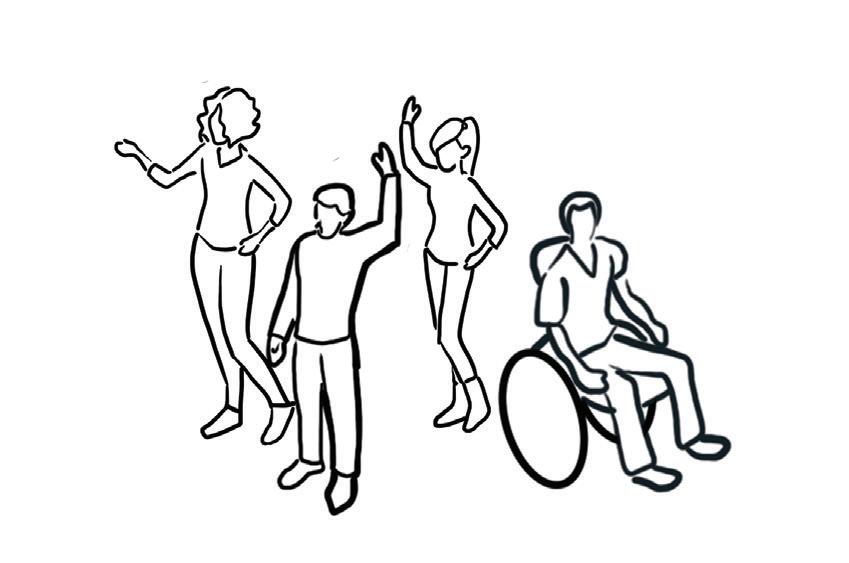

Never forget the legacies of resistance and survival of
the people we serve: There is a long history of exclusion of people with disabilities in Alberta. It is important to never forget the hard fought battles for inclusion and rights that took, and continue to take place, by the people we serve, their families, and allies.
Shine light on the creativity, ingenuity, and
adaptability of the people we serve: As others have written, “it takes guile and creativity living on the edges of humanity”. In their everyday life, people with disabilities demonstrate creativity and ingenuity as they adapt to living in a world that is often built without them in mind. Support engaged citizenship: Individuals who have meaningful things to do (participation), people who love and care about them (relationships), opportunities for independence and choice (rights), and a sense of connectedness to something bigger than themselves (belonging), tend to be more resilient in the face of adversity. At Skills, when we think of a citizen, we think of them as both an individual in their own right, as well as a member of a broader community that has a series of interconnected parts. If we want to support that citizen then, we have to both support their individual needs as well as look beyond the individual at the ways the community might be hindering or supporting their citizenship. The support provided to the citizen then, is a balance of helping them, while also contributing to shifting or nudging the community around
Some of the Ways We Build Resilience Together
1
2
3
them.
4
5
6 Engage in system level advocacy: A big part of making communities more resilient is challenging social, attitudinal, and structural barriers that marginalize people with disabilities. We make others aware of these barriers and tackle them in big and small ways.
Harness our interdependence and
interconnectedness: We harness the power of our interconnectedness as citizens recognizing the ways it makes our communities stronger.
Balance our focus on the here and now and what’s
to come: We strive to both work hard at constantly improving our supports to better serve people and look ahead at what’s to come so we can be active participants in shaping our future.
Why build resilience together?
We feel strongly about building more resilient communities at Skills Society because we believe it can contribute to making people’s lives better. When our communities are resilient, people with disabilities can thrive, not just survive. They can be safe, healthy, connected, and active citizens.
This piece was written by Paige Reeves, Senior Leader of Research and Social Innovation
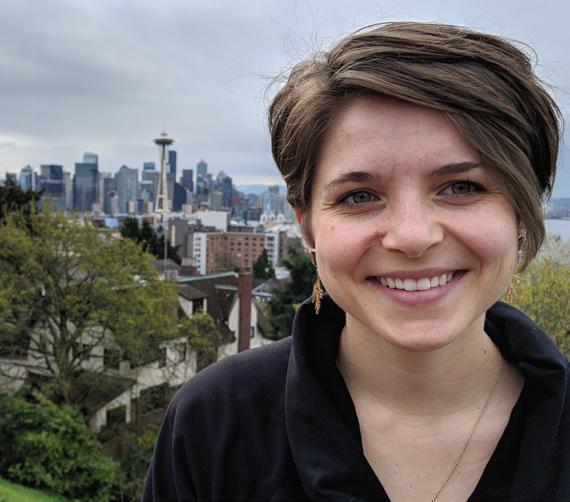
V A L U E S I N A C T I O N
Seek Creative Collaborations
By working with others, we build a stronger community of neighbours, leaders and advocates.
Over the past three years we’ve developed a partnership with the Rotary Club of Edmonton Whyte Avenue. One of our staff is a member of the Rotary Club and bridged the connection - recognizing a need at Skills Society and the Rotary Club’s desire to be of service. For the past three years the Rotary Club has donated and created holiday stockings for the people we serve through our Outreach Program. They have also recently stepped up to offer several hundred home cooked meals to the people we serve through our Outreach Program after hearing about food bank shortages during COVID-19.
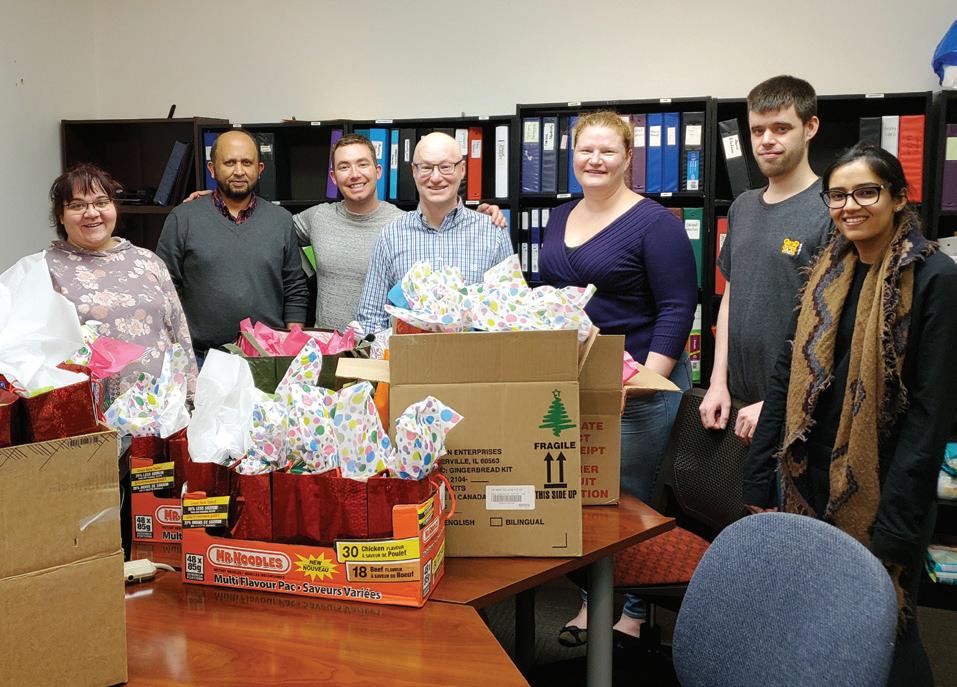
Members of Skills Leadership and the Rotary Club behind the stockings they filled for people we serve in Outreach.

